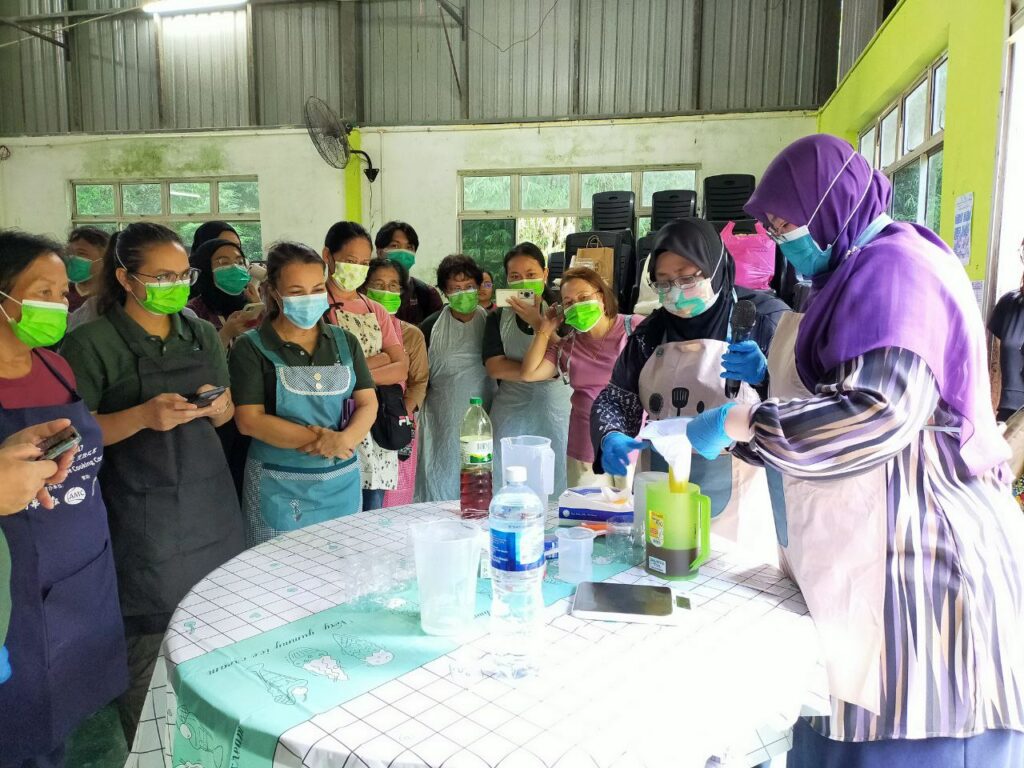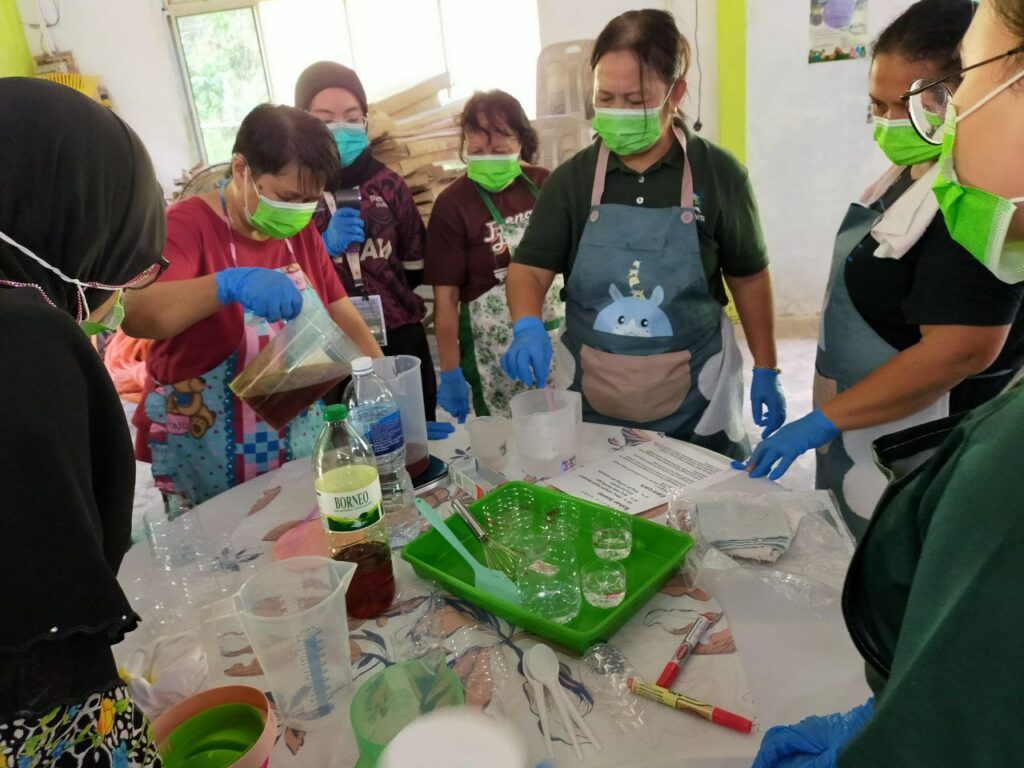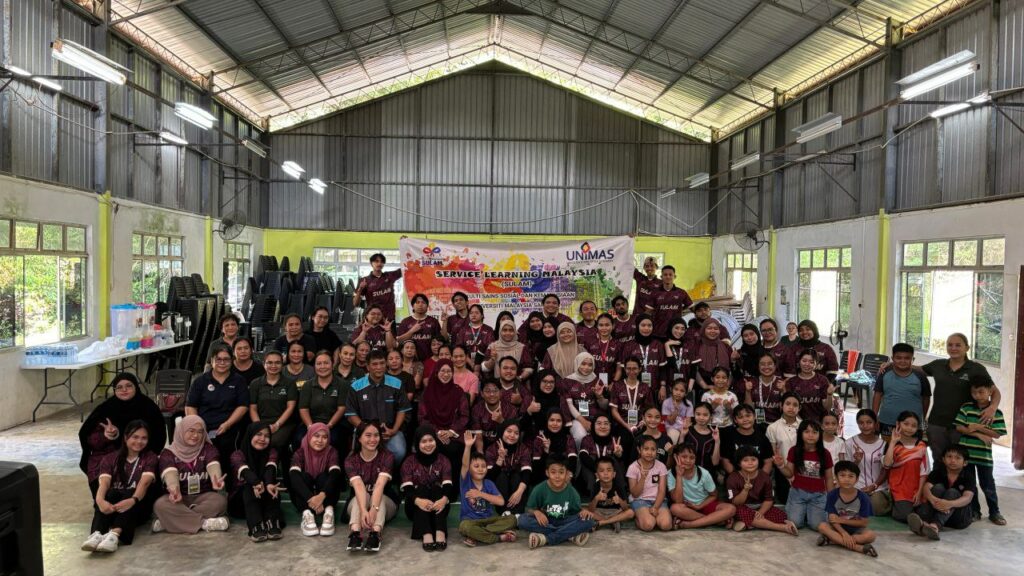Written by Noor’ain Aini
UNIMAS’ IR students once again proved that meaningful diplomacy starts with people – and sometimes, with just a bar of soap.
On 14 June 2025, 42 final-year students registered in the course SSA3234 Politics of the Developing World, Faculty of Social Sciences and Humanities (FSSH), UNIMAS, brought classroom knowledge into community action through a meaningful outreach initiative titled “Projek Komuniti IR Prihatin: There is ‘Us’ in Sustainability – From Used Cooking Oil to Eco-soap”.

Headed by Miss Irene Valerie Nasod, the project was held in Kampung Giam, Padawan in collaboration with the Women’s Bureau, and drew the participation of roughly 25 local women. It focused on raising awareness about the environmental hazards of improper disposal of used cooking oil and taught residents how to recycle it into biodegradable soap. This knowledge transfer initiative combined environmental education with practical skill-building and community empowerment.


The activities included environmental briefings and hands-on soap-making workshops conducted by UNIMAS Social Innovation Team led by Hajah Siti Haslina Hussin comprising lecturers from three different faculties.
In his closing speech, Samen Sanggod, Head of the Development Committee, praised the relevance and impact of the project, and extended an invitation to the UNIMAS team for future collaboration.
“This collaboration has proven valuable. We are eager to explore more advanced soap-making techniques and continue working with UNIMAS on future projects,” he remarked.
Jennifer Atok, Head of the Women Bureau, claimed that the project was an eye-opener. “We never realized the potential of something we usually throw away. I hope to make this project the flagship initiative of our village – producing eco-soap from used cooking oil. With more training, the women here can sustain this effort and possibly turn it into a small home-based industry,” she said excitedly.
Hajah Noor’ain Aini, course lecturer and project advisor, closed the project by reflecting on the importance of turning theory into practice and making meaningful engagement with the community for a lasting impact.
“Sustainability is not just a concept taught in classrooms. Today, through simple action, it became a lived reality. This project proves that each of us – students and communities alike – can take meaningful steps towards environmental change,” she said. “The project initiative aligns with SDG 11 (Sustainable Cities and Communities), SDG 12 (Responsible Consumption and Production), SDG 13 (Climate Action), and SDG 17 (Partnerships for the Goals),” she added.
More than 16 liters of used cooking oil were turned into soaps that day, significantly reducing the potential environmental harm from improper disposal. The project successfully achieved its goal of transferring knowledge to trigger both awareness and action – demonstrating how small-scale community engagement can have lasting environmental impact.

FSSH – A partner for social change!